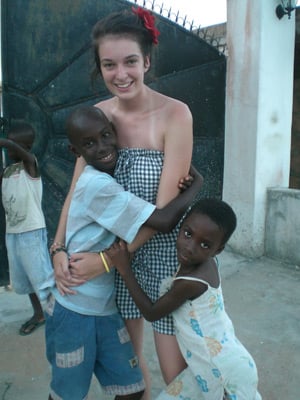Original URL: https://www.theregister.com/2014/04/30/quid_a_day_malaria/
The Reg Quid-a-Day Nosh challenge: What's the point, exactly?
Malaria sucks, that's the point – and let us tell you how
Posted in Science, 30th April 2014 13:04 GMT
It's been an entertaining week so far for the El Reg Quid-a-Day Nosh Posse, as team members battle to survive on just £1 per day for food as part of the Live Below the Line challenge.
Calorific intake concerns aside, we've managed to knock up a few decent meals, and even forage a bit of extra nutrition.
Of course, living for five days on a fiver is in no way comparable to living permanently without sufficient food, but Live Below the Line explains that the fundamental idea is to "deepen understanding of the challenges faced by individuals living in extreme poverty, and to raise vital funds for crucial anti-poverty initiatives".
The El Reg posse is rattling the tin for Malaria No More UK, which "works to protect and save lives from malaria in Africa where 90 per cent of all deaths occur".

Jemma Berwick
In my case it's personal, because I've had malaria, and let me tell you in no uncertain terms it absolutely fucking sucks. I'll elaborate in a moment, but Live Below the Line sent over the story of fellow fundraiser Jemma Berwick, who likewise suffered while working in Ghana for six weeks as a trainee paediatric nurse.
She said: "It was my first time outside of Europe, I knew it was going to be different but nothing prepares you for just how different life is. The hospitals were basic with hardly any equipment. The children’s ward had 30 beds, two thirds taken up with children who had malaria. The majority of patients were pretty weak as they were malnourished as well as suffering from malaria.
"I found it incredibly tough to see children so ill, especially from a disease that is preventable. I knew the statistics and that a child dies from malaria every minute, but knowing the numbers does not mean you are ready for the day-to-day reality of the impact of malaria."
Jemma then recounted how she succumbed to malaria: "I got up late and couldn't face breakfast but went into work the late shift. I felt a stabbing pain in my left arm and my chest, but didn't think anything of it as I'd been in the sun the week before so put it down to that. I just felt really tired and after the shift went home and just crashed out on our sofa.
"My housemate Anna, a trainee doctor, saw me and sounded the alarm bell immediately as I couldn't breathe properly and my lips and fingers had turned blue. I started to drift in and out of consciousness. I remember thinking that it felt like someone was sitting on my chest and I became really scared. I had Plasmodium falciparum, the deadliest form of malaria.
"I needed four bags of fluid throughout the night as I was so dehydrated. In the morning I had another injection of quinine before being discharged with a strong antimalaria agent called Coartem."
Nasty. Jemma then slept for a week before gamely struggling back to her placement. Back in the UK, she pledged her support for Malaria No More.
My story: 'I'm going to die in this s***hole'
My own tale of woe unfolded during a particularly ill-fated trip to Panama's Darien Gap many moons ago. While attempting a truck-borne escape from the arse-end of nowhere (Yaviza, where the Pan-American Highway claps out into a muddy track flopping into the banks of the Río Chucunaque), me and a mate arrived in a small village where I suddenly felt decidedly unwell.
I also found myself suddenly unable to walk, and while crawling down a dirt track in desperate search of a stream, I realised I was in pretty bad shape.
My companion suggested we'd better get back to the truck before it left us to our fate, and the last thing I clearly remember was thinking: "If I don't get up and walk I'm going to die in this shithole."
One nightmare ride back to Panama City and five days later, I had another attack, and spent the night in a hotel room in state of high fever and delirium. I'm pretty convinced I had a profound insight into the nature of being and the universe, but when I recovered, I found I hadn't had the good sense to commit it to paper.
Four or five days after that, the malaria gave me another kicking. The doctor said: "Well, stick it out, you've been through worse." I noted to my travelling companion: "Yeah, that time I copped bubonic plague was a real bummer."
I was then spared for six months or so, until a last blast landed me in London's excellent Hospital for Tropical Diseases, after which malaria finally decided to leave me in peace.
As someone who'd willingly travelled to a malarial area, I considered myself fair game for mosquito-delivered parasites, even if they rather unsportingly ignored my anti-malaria tablets.
My support for Malaria No More is for the benefit of people who have no choice but to live in such places, so if you fancy lending them a hand against this most unpleasant of diseases, you can donate right here. ®